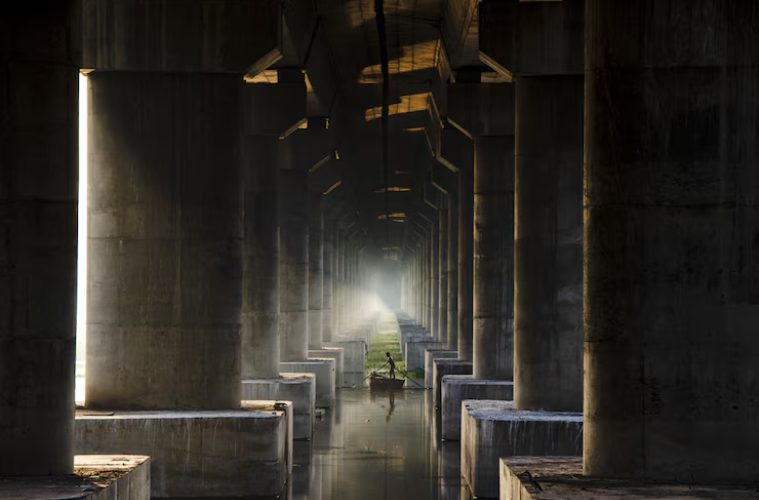Roman Engineering in Architecture: The Brains Behind the Bricks

Strong 8k brings an ultra-HD IPTV experience to your living room and your pocket.
Hey there! 👋 I’m Suma — a 24-year-old content marketer, SEO strategist, and part-time ancient history fangirl. 😄 If you’ve ever walked into a building and marveled at its arches, domes, or organized layout, chances are… the Romans did it first. Yup, those toga-wearing legends didn’t just build an empire — they engineered a legacy. 🏛️🇮🇹
Today I want to share how Roman engineering literally reshaped the world, and why it still matters — from Google HQs to your neighborhood metro station. Spoiler alert: they were kind of geniuses. 🔥
🕰️ A Quick Overview of Roman Architecture
Before we talk engineering, let’s set the scene:
📅 Time Period:
509 BCE – 476 CE (The Roman Republic through to the fall of the Western Empire)
🔍 Core Values in Roman Design:
Utility
Strength
Grandeur
Engineering precision
Where Greek architecture was about beauty and proportion, Roman architecture added the tech wizardry that made things bigger, better, and longer-lasting.
👉 Wikipedia: Roman architecture
🧠 Roman Engineering Innovations That Changed Architecture Forever
Let’s break down the major Roman innovations — and how they still influence architecture today.
1. Concrete (Opus Caementicium) 🧱
“Give a Roman some ash and lime, and he’ll build you the world.” — Suma, 2025 😉
Romans didn’t invent concrete, but they perfected it. They used volcanic ash, lime, and water to create a mix that was durable, fast-drying, and easy to mold.
💡 Why It Mattered:
Enabled complex forms (domes, arches)
Waterproof (huge for aqueducts & baths)
Lasted centuries (some Roman concrete is still intact)
✅ Pros: Incredibly durable, cost-effective
❌ Cons: Ancient formulas were lost after the fall of Rome (we’re still reverse-engineering it today!)
2. The Arch 🌈
The Greeks had post-and-lintel systems (two verticals and a horizontal beam). Romans said: "Hold my wine." 🍷
They introduced the arch, which distributed weight evenly and allowed for much larger spans — perfect for bridges, gates, aqueducts, and coliseums.
🔍 Engineering Impact:
Reduced material stress
Allowed for massive interior spaces (hi, basilicas!)
Paved the way (literally) for future building styles
Famous Example: Pont du Gard, France
👉 Wikipedia: Roman arch
3. The Dome 🏛️
Taking arches to the next level — literally — the Romans rotated them 360° to create domes.
The Pantheon in Rome has a dome that’s still the world’s largest unreinforced concrete dome — built in 126 AD. Mind. Blown. 💥
Why It Was Genius:
Created vast, open interiors with natural acoustics
No central columns needed = spacious, airy designs
✅ Pros: Beautiful, open, and symbolic
❌ Cons: Complex to build without cracking or collapse
4. Aqueducts & Water Systems 🚿
What’s an empire without plumbing? The Romans engineered miles of aqueducts to bring fresh water into cities — using gravity, arches, and precise math. 😎
They even had public toilets, fountains, and heated baths thanks to their plumbing mastery.
Famous Example: Aqua Appia (312 BCE)
👉 Wikipedia: Roman aqueducts
✅ Pros: Hygiene, public health, comfort
❌ Cons: Maintenance-heavy & vulnerable to sabotage
5. Roads & Urban Planning 🛣️
“All roads lead to Rome” isn’t just a saying — it’s literal! 🧭 Romans built over 250,000 miles of roads using layered materials and slight curves to help water runoff.
They Also Invented:
Grids for cities (inspired modern urban layouts)
Forum (precursor to public plazas & malls)
Basilicas (now courthouses, churches, offices)
✅ Pros: Connectivity, efficiency, civic pride
❌ Cons: Needed military-level planning & manpower
6. Amphitheaters & Stadiums 🏟️
What’s a culture without entertainment? The Romans created epic amphitheaters (like the Colosseum) with tiered seating, elevators for animals (seriously!), and retractable roofs (the velarium).
🎉 Sound familiar? Modern stadiums owe everything to Roman design!
👉 Wikipedia: Roman amphitheatre
🌍 Influence of Roman Engineering on Modern Architecture
You’ll even find Roman-inspired styles in:
🔹 Government Buildings — Think of the grand pillars and domes of the U.S. Capitol, Supreme Court, and Parliament Houses worldwide. The Roman love for order and authority reflects in these mighty structures!
🔹 Luxury Hotels & Resorts — Many upscale hotels use Roman arches, colonnades, and marble-inspired interiors to evoke opulence and grandeur.
🔹 Shopping Malls — From ceilings with painted domes to large rotundas, Roman influence makes these spaces feel open and majestic (Caesars Palace in Las Vegas is a perfect example!).
🔹 University Campuses — Roman arches and domed libraries remain iconic in many top universities like Harvard, Oxford, and Cambridge.
🔹 Sports Arenas — The design of modern stadiums (Olympics, FIFA, IPL) is deeply rooted in the concept of the Roman Colosseum—large-scale audience accommodation with perfect sightlines.
You’ll even find Roman-inspired styles in:
🔹 Government Buildings — Think of the grand pillars and domes of the U.S. Capitol, Supreme Court, and Parliament Houses worldwide. The Roman love for order and authority reflects in these mighty structures!
🔹 Luxury Hotels & Resorts — Many upscale hotels use Roman arches, colonnades, and marble-inspired interiors to evoke opulence and grandeur.
🔹 Shopping Malls — From ceilings with painted domes to large rotundas, Roman influence makes these spaces feel open and majestic (Caesars Palace in Las Vegas is a perfect example!).
🔹 University Campuses — Roman arches and domed libraries remain iconic in many top universities like Harvard, Oxford, and Cambridge.
🔹 Sports Arenas — The design of modern stadiums (Olympics, FIFA, IPL) is deeply rooted in the concept of the Roman Colosseum—large-scale audience accommodation with perfect sightlines.
You’ll even find Roman-inspired styles in:
Washington D.C. (Capitol, Lincoln Memorial)
European cathedrals
Colonial-era Indian buildings (like Victoria Memorial, Kolkata)
👉 Check out The Indian Architecture for cool blends of Roman, Mughal, and colonial design in India!
✍️ Why This Still Matters (From a Content Girl’s POV)
As someone who works in content and SEO, I love connecting the dots between old innovations and modern relevance. Roman engineering isn’t just history — it’s a blueprint for how we build sustainably, efficiently, and beautifully today.
They were the OG problem-solvers:
“How do we build higher?” ➡️ Use concrete.
“How do we expand cities?” ➡️ Grid layouts.
“How do we entertain thousands?” ➡️ Create amphitheaters.
As creators, marketers, or architects, that mindset is gold. 💡
✅ Pros & Cons of Roman-Inspired Engineering Today
✅ Pros:
Timeless aesthetics
Functional brilliance
Structural durability
❌ Cons:
Can be costly to replicate
Materials & styles need adaptation to modern climates
Some ideas (like mass aqueducts) are outdated in today’s tech landscape
📢 Want to Write About This Too?
If you're into architecture, engineering, or even just design writing like I am — there’s space for your voice!
👉 Write for Us – Architecture is a fab platform to get your content out into the world and rank well on Google too! 📈
🧱 Final Thoughts from Me 🧡
The Romans didn’t just build buildings — they built systems. And those systems became the bones of civilization. Whether you’re designing a house, writing content, or planning a campaign… Roman logic and innovation are worth borrowing.
Because at the end of the day, great engineering isn’t about stone and steel — it’s about solving problems that last centuries. 💬
Let’s keep building. Thoughtfully. Creatively. Fearlessly. Just like the Romans did. 🛠️💪
Thanks for reading,
Suma ✍️
SEO & Content Marketing Specialist | History Buff | Roman Geek | Filter Coffee Enthusiast ☕
📚 Useful Links
Wikipedia: Roman Architecture
Wikipedia: Roman Engineering
The Indian Architecture
Write For Us – Architecture
Note: IndiBlogHub features both user-submitted and editorial content. We do not verify third-party contributions. Read our Disclaimer and Privacy Policyfor details.







